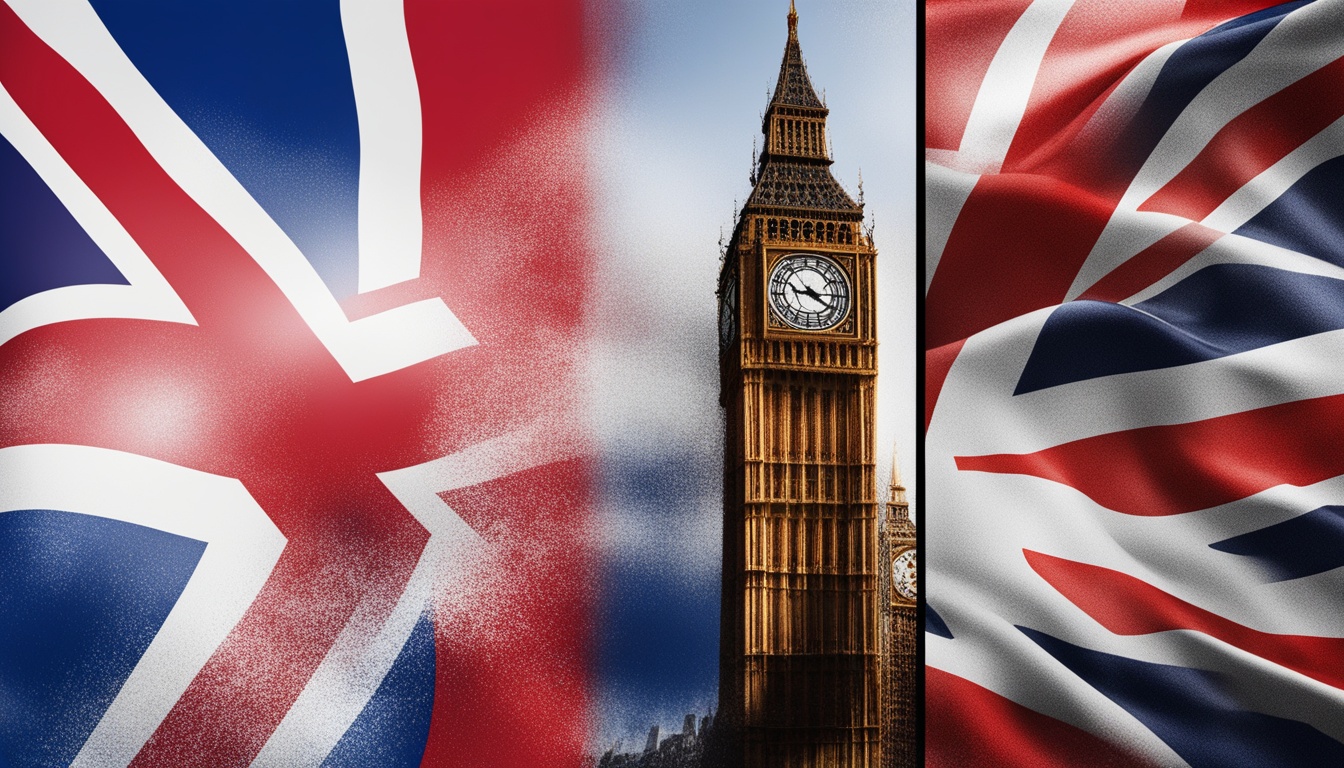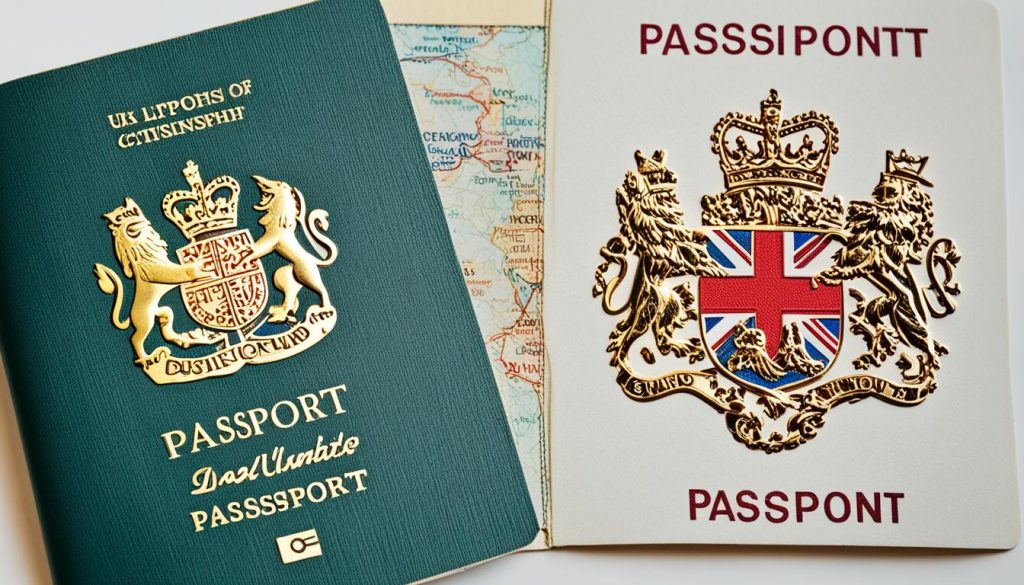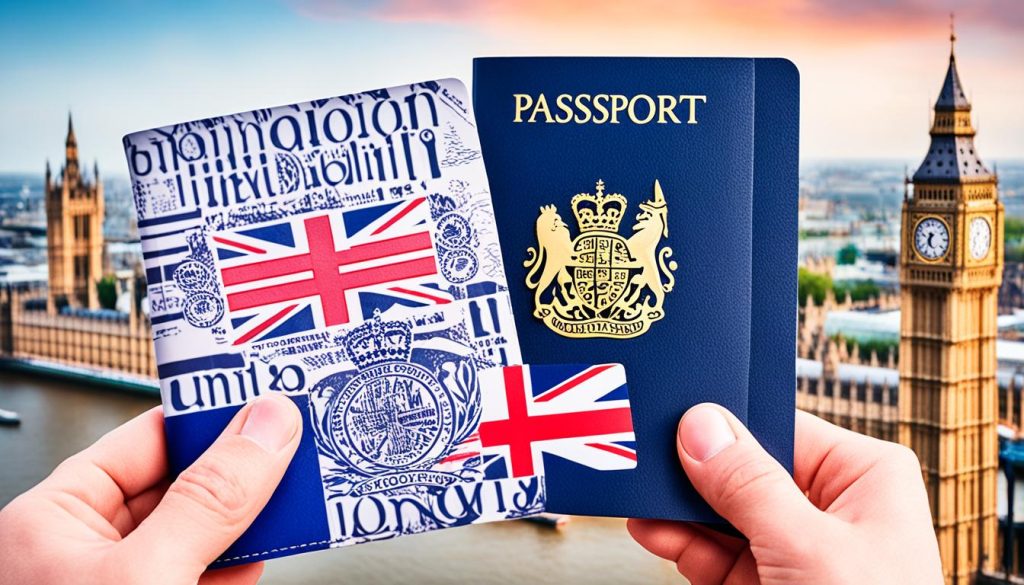Dual Citizenship UK: Rules, Benefits, and Requirements

Navigating the complex world of dual citizenship in the United Kingdom can be a daunting task, but this comprehensive article aims to provide you with a clear understanding of the rules, benefits, and requirements for obtaining and maintaining dual citizenship as a UK resident. From exploring the UK’s stance on dual nationality to delving into the eligibility criteria for acquiring British citizenship, this article will equip you with the knowledge you need to make informed decisions about your citizenship status.
Whether you’re a British citizen considering retaining your existing citizenship or an aspiring dual citizen seeking to navigate the UK’s immigration landscape, this article has got you covered. We’ll delve into the advantages of holding dual citizenship, including enhanced travel opportunities, increased job prospects, and the ability to access multiple countries with ease. Additionally, we’ll explore the legal and practical considerations surrounding the process of renouncing British citizenship, as well as the requirements for indefinite leave to remain in the UK.
By the end of this article, you’ll have a thorough understanding of the dual citizenship landscape in the UK, empowering you to make the best decisions for your personal and professional goals. So, let’s dive in and explore the world of dual citizenship in the United Kingdom.
Key Takeaways
- The UK generally accepts dual citizenship, allowing individuals to hold British citizenship while retaining their existing citizenship from another country.
- Dual citizenship offers numerous benefits, such as access to multiple countries, enhanced travel opportunities, and increased job prospects.
- There are several pathways to obtaining British citizenship, including through naturalization, descent, or registration.
- The UK’s nationality law outlines the eligibility criteria and application process for British citizenship, including required documentation.
- Indefinite Leave to Remain (ILR) in the UK provides permanent residency and increased stability for dual citizens.
Understanding Dual Citizenship in the UK
Dual citizenship, also known as dual nationality, is a legal status that allows an individual to be a citizen of two or more countries simultaneously. In the United Kingdom, the concept of dual citizenship is generally accepted, enabling individuals to hold British citizenship while retaining their existing citizenship from another country.
What is Dual Citizenship?
Dual citizenship, or dual nationality, refers to the status of a person who is recognized as a citizen by two or more countries. This can occur through various means, such as being born in one country to parents who are citizens of another, or by naturalization in a new country while maintaining the citizenship of one’s country of origin.
UK’s Stance on Dual Nationality
The UK government generally permits dual citizenship, recognizing that individuals may have strong ties to multiple countries. However, there are some exceptions and restrictions that apply, which are outlined in the UK’s nationality law. It is important for individuals to understand the specific rules and requirements related to dual nationality in order to ensure compliance with UK regulations.
Benefits of Holding Dual Citizenship in the UK
Holding dual citizenship in the UK can unlock a wealth of benefits for individuals seeking to maximize their access, opportunities, and mobility. One of the primary advantages is the ability to take advantage of the access to multiple countries that dual citizenship provides. Dual citizens have the right to live, work, or study in the countries of their respective nationalities, granting them a level of flexibility and freedom that can be invaluable in an increasingly globalized world.
In addition to the enhanced travel opportunities that dual citizenship affords, it can also open up a broader range of job prospects for individuals. Dual citizens may be eligible for positions or opportunities that are restricted to citizens of certain countries, giving them a competitive edge in the job market and allowing them to pursue a wider variety of career paths.
Furthermore, the ability to utilize the passport of the country that provides the most convenient or advantageous visa-free access to other nations can be a significant benefit for dual citizens. This can greatly simplify the travel planning process and reduce the hassle of obtaining visas, ultimately leading to a more streamlined and enjoyable travel experience.
Overall, the benefits of holding dual citizenship in the UK extend far beyond the practical aspects of increased mobility and job opportunities. Dual citizenship can also foster a deeper sense of connection and belonging, allowing individuals to maintain strong ties to their cultural heritage while also fully embracing the opportunities that the UK has to offer.
Dual Citizenship UK
Navigating the process of acquiring British citizenship while maintaining an existing citizenship can be a nuanced and complex undertaking. The UK, however, generally permits dual nationality, allowing individuals to hold British citizenship alongside their existing citizenship from another country.
Acquiring British Citizenship
There are several pathways to obtaining British citizenship, including through naturalization, descent, or registration. The specific requirements and eligibility criteria for each method vary, but they may involve factors such as residency, language proficiency, and good character. Individuals interested in becoming British citizens should carefully review the relevant guidelines and ensure they meet the necessary qualifications.
Maintaining Existing Citizenship
One of the key benefits of dual citizenship in the UK is the ability to retain one’s existing citizenship while becoming a British citizen. The UK’s stance on dual nationality generally allows individuals to hold both their original citizenship and their newly acquired British citizenship, provided they meet the appropriate requirements. This can provide dual citizens with expanded opportunities, increased mobility, and a sense of belonging to multiple national communities.

The process of acquiring British citizenship while maintaining an existing citizenship can be navigated with careful consideration of the relevant laws and regulations. By understanding the different pathways and the ability to hold dual citizenship, individuals can make informed decisions about their citizenship status and explore the unique benefits and opportunities that come with dual nationality in the UK.
UK Nationality Law and Requirements
Understanding the intricacies of UK nationality law is crucial for individuals seeking to acquire British citizenship. This section delves into the eligibility criteria, the application process, and the required documentation necessary to navigate the pathway to becoming a British citizen.
Eligibility Criteria
The eligibility criteria for obtaining British citizenship are multifaceted and may vary depending on an individual’s circumstances. Factors such as residency, language proficiency, good character, and financial standing are often taken into consideration by the UK Home Office when evaluating citizenship applications.
Applicants must typically demonstrate a minimum period of continuous residency in the UK, with specific requirements for different pathways to citizenship, such as naturalization or registration. Language competency, as assessed through standardized tests, is also a common requirement, ensuring that prospective citizens can effectively integrate into British society.
Additionally, applicants must meet the good character criteria, which involve a review of their criminal history, financial standing, and overall conduct. This process aims to ensure that individuals seeking British citizenship are aligned with the values and principles of the United Kingdom.
Application Process
The application process for British citizenship involves several steps and the submission of various forms and documents. Applicants must carefully follow the guidelines provided by the UK Home Office, ensuring that all necessary information and supporting materials are included in their application.
The process typically begins with the selection of the appropriate application form, which may vary depending on the applicant’s circumstances and the specific pathway to citizenship they are pursuing. Once the form is completed, applicants must gather the required documentation, such as birth certificates, passports, and proof of identity and residency.
After the application and supporting documents have been submitted, the UK Home Office will review the case and may request additional information or interviews as part of the assessment process. Successful applicants will then be invited to attend a citizenship ceremony, where they will formally be granted British citizenship.
Required Documentation
The required documentation for British citizenship applications can vary depending on the specific circumstances of the applicant. However, there are several core documents that are typically required, regardless of the pathway to citizenship being pursued.
These documents may include:
- Birth certificate
- Valid passport(s)
- Proof of identity and residency in the UK
- Evidence of language proficiency
- Criminal record checks
- Financial statements or supporting documents
Applicants must ensure that all required documents are submitted in the appropriate format and within the specified timeframes to avoid any delays or complications in the application process.
Renouncing British Citizenship
While the United Kingdom generally accepts renouncing british citizenship, there may be circumstances where an individual chooses to relinquish their British nationality. This decision can be driven by personal, political, or practical reasons. The process of renouncing british citizenship involves specific legal requirements and procedures that must be followed.
One of the primary reasons individuals may opt to renounce their british citizenship is a desire to focus solely on their other country of citizenship. This could be due to personal or political affiliations, or it may be a strategic move to simplify administrative and legal matters. In some cases, renouncing british citizenship may be necessary for individuals seeking to obtain citizenship in another country that does not recognize dual nationality.
The legal requirements for renouncing british citizenship include submitting the appropriate forms and documentation to the UK Home Office. This typically involves providing proof of identity, evidence of existing or impending citizenship in another country, and a formal statement of intent to relinquish British nationality. The process may also involve paying the required fees and ensuring that all outstanding obligations, such as taxes or legal matters, are resolved before the renunciation can be finalized.
It’s important to note that renouncing british citizenship is a significant decision with long-term implications. Individuals considering this step should carefully weigh the potential consequences and seek professional legal advice to ensure they fully understand the process and the impact it may have on their personal and professional circumstances.
UK Citizenship by Descent
The concept of UK citizenship by descent offers a unique pathway for individuals to acquire British citizenship through their parents or grandparents. This provision within the UK nationality law allows eligible applicants to claim British citizenship, even if they were born outside of the United Kingdom.
Eligibility Criteria
The eligibility criteria for UK citizenship by descent are primarily based on the citizenship status of the applicant’s parents or grandparents. Typically, an individual may be eligible for UK citizenship by descent if one or both of their parents were British citizens at the time of the applicant’s birth, or if one or both of their grandparents were British citizens.
Additionally, the applicant’s family history and the specific circumstances surrounding their birth and upbringing may also come into play when determining eligibility. It’s important to thoroughly review the detailed requirements to ensure that you meet the necessary criteria for claiming UK citizenship by descent.
Application Process
The application process for UK citizenship by descent involves several steps and the submission of various supporting documents. Applicants will need to provide evidence of their familial connection to the United Kingdom, such as birth certificates, marriage certificates, and proof of their parent’s or grandparent’s British citizenship.
The application may also require the applicant to undergo background checks, provide biometric data, and pay the appropriate fees. It’s advisable to carefully review the application process for UK citizenship by descent and seek professional guidance to ensure a successful outcome.
British Overseas Territories Citizenship
British Overseas Territories Citizenship is a distinct form of British nationality that applies to individuals with ties to specific territories under the sovereignty of the United Kingdom. These territories, often referred to as the British Overseas Territories, include Gibraltar, the Falkland Islands, Bermuda, and several others.
Territories Included
The British Overseas Territories that confer this unique citizenship status include Gibraltar, the Falkland Islands, Bermuda, the Cayman Islands, Montserrat, the Turks and Caicos Islands, the British Virgin Islands, Anguilla, Saint Helena, Ascension and Tristan da Cunha, and the Pitcairn Islands.
Benefits and Restrictions
Holding British Overseas Territories Citizenship offers certain benefits and privileges, such as the right to live, work, and access public services in the specific territory. However, it also comes with certain restrictions, as British Overseas Territories Citizenship does not automatically confer full British citizenship or the right to live or work in the United Kingdom or other British overseas territories. Individuals with British Overseas Territories Citizenship may need to apply for additional immigration permissions to travel or reside in the UK or other territories.
It’s important for individuals with ties to the British overseas territories to carefully understand the benefits and restrictions of British Overseas Territories Citizenship to make informed decisions about their citizenship status and options.
Indefinite Leave to Remain in the UK
Navigating the complex world of UK immigration can be a daunting task, but one of the most valuable statuses to obtain is Indefinite Leave to Remain (ILR). This form of permanent residency grants individuals the right to live and work in the United Kingdom without any time restrictions, providing a level of stability and flexibility that temporary visas cannot offer.
Requirements for ILR
To be eligible for ILR in the UK, applicants must typically meet several key requirements. These include having lived in the country for a continuous period of at least five years, maintaining a valid immigration status throughout this time, and demonstrating a certain level of proficiency in the English language. Additionally, applicants must pass the “Life in the UK” test, which assesses their knowledge of British history, culture, and customs. Depending on an individual’s specific circumstances, there may be other criteria that must be fulfilled, such as maintaining a certain level of income or employment status.
Advantages of ILR
Obtaining ILR in the UK offers a host of benefits that can significantly improve an individual’s quality of life and opportunities. One of the primary advantages is the ability to live and work in the country without time limitations, eliminating the need to constantly renew temporary visas or residence permits. This provides a greater sense of security and stability, allowing individuals to plan for the long-term and invest in their future in the UK.
Additionally, ILR holders are eligible for the same social welfare benefits and healthcare services as British citizens, including access to the National Health Service (NHS) and the ability to claim various forms of government assistance. This can be particularly valuable for those with families or dependents.
By understanding the requirements and advantages of Indefinite Leave to Remain in the UK, individuals can make informed decisions about their immigration status and explore the possibilities that this permanent residency option can offer. Whether you are a recent arrival to the UK or have been residing in the country for several years, ILR can provide the stability and security you need to thrive and achieve your goals.
UK Immigration and Dual Citizenship
As an individual with dual citizenship, navigating the UK immigration process can present unique considerations and opportunities. Understanding the impact of dual citizenship on your visa and residency status is crucial for a smooth and successful journey.
Impact on Visa and Residency Status
Holding dual citizenship can influence your visa and residency options within the UK. Depending on the countries involved, you may be able to leverage your multiple citizenships to secure more advantageous entry and stay requirements. For instance, UK citizens with dual nationality may be eligible for longer-term visas or even indefinite leave to remain, providing greater stability and flexibility.
However, it’s important to note that the impact of dual citizenship on your immigration status can also vary based on the specific circumstances. In some cases, complications may arise, such as potential conflicts between the requirements of different countries. Careful planning and understanding of the relevant laws and regulations are essential to ensure a seamless transition.
Navigating the UK Immigration Process
When navigating the UK immigration process as a dual citizen, it is crucial to familiarize yourself with the latest policies and procedures. This may involve staying up-to-date with changes in legislation, understanding the application requirements for various visa types, and seeking professional guidance when necessary.
One key strategy for dual citizens is to thoroughly research the options available to them, such as the opportunity to apply for British citizenship or indefinite leave to remain. By carefully considering their individual circumstances and the potential benefits of different immigration routes, dual citizens can make informed decisions and optimize their chances of a successful outcome.
Additionally, dual citizens should be prepared to provide comprehensive documentation and evidence to support their immigration applications. This may include birth certificates, passports, proof of residency, and other relevant documents that demonstrate their eligibility and ties to the UK.

Conclusion
As we reach the end of our exploration of dual citizenship in the UK, it’s clear that understanding the rules, benefits, and requirements surrounding this status is of paramount importance. The conclusion we can draw is that holding dual citizenship can open up a world of opportunities, from increased mobility and enhanced travel options to expanded job prospects and greater access to resources in multiple countries.
Throughout this article, we’ve delved into the UK’s stance on dual nationality, the various pathways to acquiring British citizenship, and the ability to maintain one’s existing citizenship. We’ve also examined the nuances of UK nationality law, the application process, and the required documentation, as well as the considerations around renouncing British citizenship and navigating the immigration landscape as a dual citizen.
Ultimately, the conclusion of this comprehensive guide is that dual citizenship in the UK is a complex but potentially rewarding status. We encourage readers to carefully consider their individual circumstances and to seek professional advice when navigating the intricacies of dual citizenship. By doing so, you can make informed decisions that align with your personal and professional goals, and unlock the full potential of your dual citizenship in the UK.

Visitor comments ( 0 )